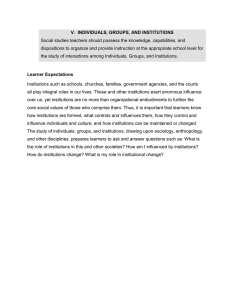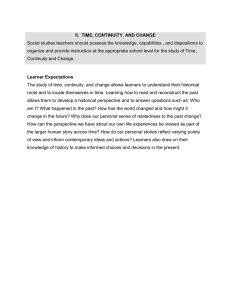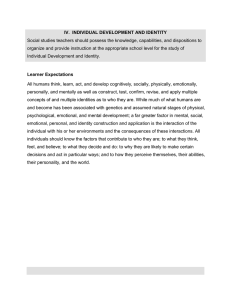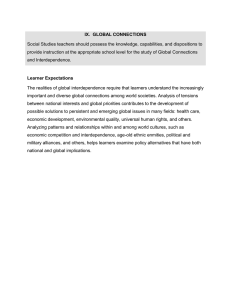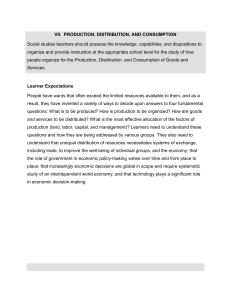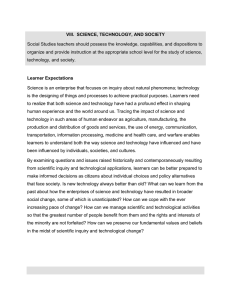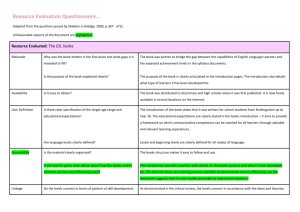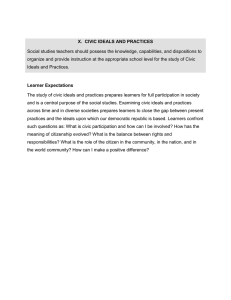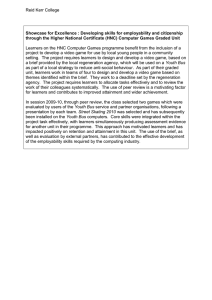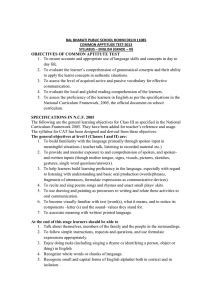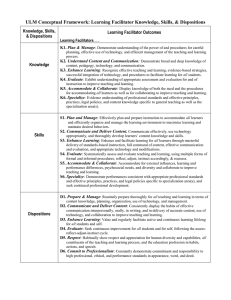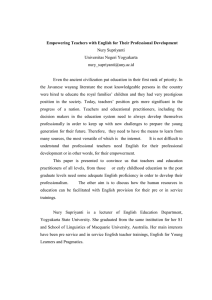Social studies teachers should possess the knowledge, capabilities, and dispositions... organize and provide instruction at the appropriate school level for... III. PEOPLE, PLACES, AND ENVIRONMENTS
advertisement
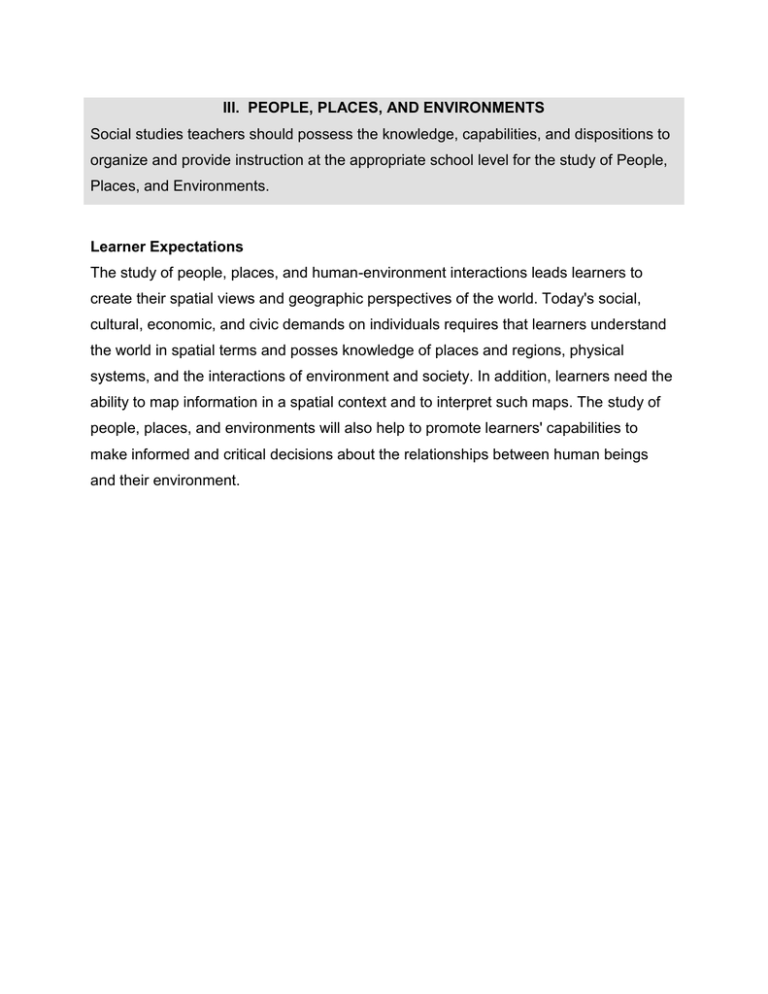
III. PEOPLE, PLACES, AND ENVIRONMENTS Social studies teachers should possess the knowledge, capabilities, and dispositions to organize and provide instruction at the appropriate school level for the study of People, Places, and Environments. Learner Expectations The study of people, places, and human-environment interactions leads learners to create their spatial views and geographic perspectives of the world. Today's social, cultural, economic, and civic demands on individuals requires that learners understand the world in spatial terms and posses knowledge of places and regions, physical systems, and the interactions of environment and society. In addition, learners need the ability to map information in a spatial context and to interpret such maps. The study of people, places, and environments will also help to promote learners' capabilities to make informed and critical decisions about the relationships between human beings and their environment. INSTRUCTIONS 1. List the courses you have taken (and final grade earned) that you feel have addressed this standard. Course # Course Name Instructor Grade Ck 2. Check (ck) above the one course that best enabled you to understand the concepts in this standard. Attach a graded work sample from this class. Attach a syllabus from this class. Highlight where the work sample appears in the syllabus. Note that you can use one course for more than one standard; however, you can only use your graded work sample once. 3. Write a 150-200 words essay (typed, double-spaced, and in 12-point font) that addresses the questions listed below. a. Why did you choose this particular course as your example? (Demonstrate that you understand the content and concepts contained in the standard. Show clearly how the course relates to the standard.) b. How does your work sample show that you understand this standard? (Demonstrate the sample's relationship to the standard.)
